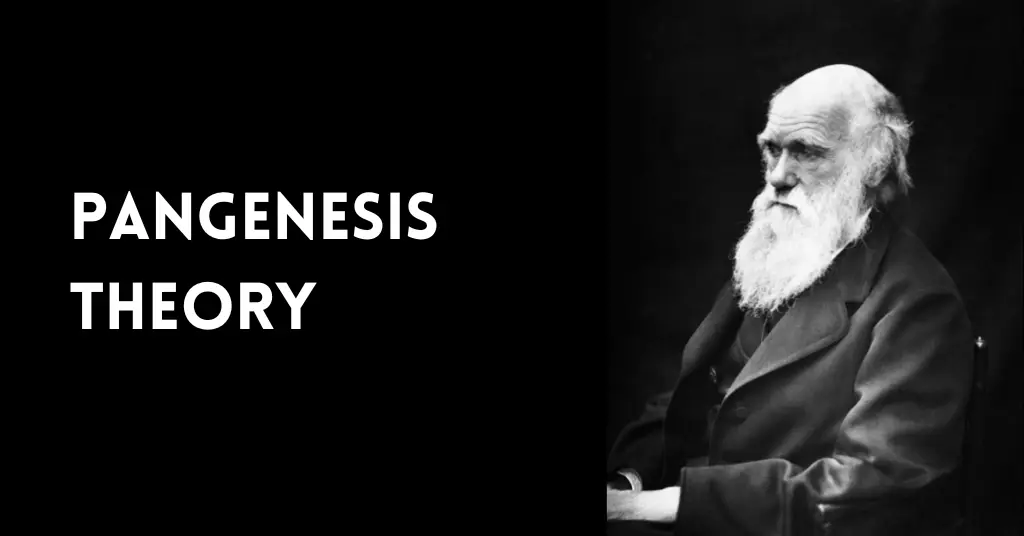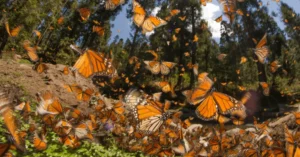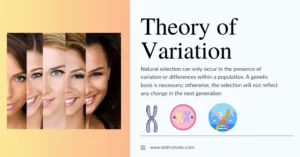AI Answer Evaluation Platform Live Now. Try Free Answer Evaluation Now
Pangenesis Theory
Pangenesis Theory is one of the Theories of Inheritance given by Sir Charles Darwin. He coined the term Pangenesis with the terms ‘pan’ which means whole and ‘genesis’ which means origin. With the term Pangenesis, Darwin wanted to put forth the idea that each part of parents could be significant in contributing to the growth, development and evolution of the offspring.[1]

He proposed this theory in 1868 in England. Darwin postulated the existence of hereditary material inside cells and he suggests that the inheritance from a parent to its offspring takes place by units that he coined as ‘units of inheritance’ or ‘Gemmules’. These units were hypothesised microscopic particles of inheritance that are thrown off by each cell of the body. Also, any change that has taken place due to environmental conditions in these gemmules would also be transferred by getting aggregated in the reproductive organs of the parents. Thus, the composition of gemmules reflects the organism’s environmental exposure. According to Dawin, the gemmules that are transferred to the offspring are either functional in immediate progeny or remain dormant for generations, this phenomenon is known as reversion.These dormant gemmules can be activated depending upon the particular cell with which they were associated. [1]
Charles Darwin, in one of his publications named ‘ The Variation of Animals under Domestication’ presented the theory of Pangenesis. He mentioned that the theory of natural selection, which is one of his most accepted and famous theories till date since its inception, was complemented by his Pangenesis theory. Although it was criticised for lack of mechanism for inheritance and development as Darwin did not mention how the environment caused different organisms in a particular population to show different varieties of traits and how offsprings inherited these variations. [1]. The Pangenesis theory was an attempt to strengthen the theory of evolution as cellular and molecular mechanisms of inheritance were provided. It also gave an acceptable explanation for phenomena like inheritance and phenotypic variation, graft hybridization, reversion, prepotency associated with Mendelian dominance inheritance, inheritance of acquired characters etc.
In the origin of Pangenesis theory, The 2000 years old ‘Theory of Inheritance of acquired characteristics’ played an important role. The assertion that characteristics acquired during the life of an organism is heritable in nature gave the basic framework for the birth of Pangenesis Theory. Some parts of the theory of inheritance of acquired characteristics were accepted while a large part of it was abandoned by scholars like Jean Baptist and Lamark, because of this the Pangenesis theory also lost its popularity in late 1890s.In the beginning of 20th century biologist replaced the Pangenesis theory with Germ Plasm theory and later on with Chromosomal Inheritance Theory. Also the unit of inheritance that was termed as gemmule was replaced with the term ‘genes’.[1]
Surprisingly, even after Darwin’s theory was criticised due to the lack of evidence, some 150 years after that and a decade ago from the present time a discovery was made related to circulating nucleic acids , small RNAs and prions that provided a noticeable evidence in favour of the chemical existence of gemmules. Along with this other evidence has also been uncovered in 2013 such as the release of nucleic acid in circulating blood stream due to reasons like apoptosis or necrosis. Also prior to this, nucleic acids were first discovered in the phloem translocation stream of plants in the 1960s. These rediscoveries related to Darwin’s Pangenesis Theory have a monumental impact on cell biology, genetics, evolution and history of science.[1]
References
[1] Yongsheng Liu, Xiuju Li, Has Darwin’s Pangenesis Been Rediscovered?, BioScience, Volume 64, Issue 11, November 2014, Pages 1037–1041, https://doi.org/10.1093/biosci/biu151




